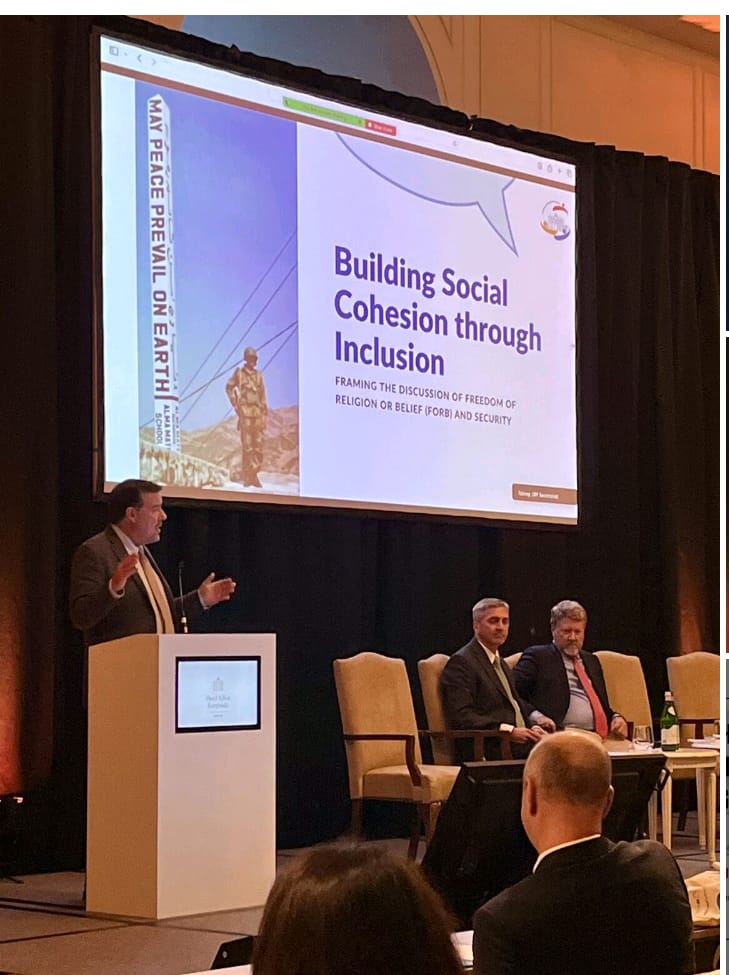
Chris Seiple, a renowned scholar-practitioner, reflected on his LinkedIn account about the recent Berlin conference that explored the intersection of religious freedom and security. He praised the event’s innovation and inclusion of new voices, particularly from the majority world. Among the highlights, Seiple lauded Halina Kusack’s leadership on women of faith in Eurasia and expressed his honor in presenting John Azumah with the international impact award for his groundbreaking work in Ghana, notably his efforts with the Ghanaian parliament to ban false accusations of witchcraft against women and dementia patients.
Seiple was inspired by the testimonies of religious minorities from Northeast Syria, who have created an autonomous zone based on religious freedom, and by the contributions of Yazidi and Christian voices from northern Iraq. He also participated in the inaugural meeting of the IRF Secretariat Global Academic Council, which featured representatives from Israel, the UAE, and others. Additionally, Uriel Simonsohn’s work on a shared society model in Haifa was particularly moving.
The presence of national, civil society, and religious leaders from Moldova, Georgia, Kazakhstan, and Uzbekistan was also encouraging, as they shared their experiences on religious freedom and security in post-communist societies. Seiple commended the efforts of the IRF Secretariat and Love Your Neighbor Community (LYNC) for fostering these important conversations, emphasizing their role in building relationships and trust in the regions they serve. He expressed gratitude to Wade Kusack, Greg Mitchell, and Nadine Maenza for their leadership in these initiatives.
Earlier, Chris Seiple shared that he and Dennis Hoover had the privilege of presenting introductory remarks at the Berlin conference on freedom of religion or belief and security. The event was co-hosted by the IRF Secretariat, LYNC – Love Your Neighbor Community, and the Templeton Religion Trust.
Seiple noted that while their 20-minute presentation was meaningful, there were even more impactful moments throughout the conference, which he plans to share later. In their presentation, they put forth two key points: first, that religious freedom is not only morally right but also in everyone’s self-interest; and second, that a nation’s future is shaped by its past.
Seiple posed the question of what stories or traditions from a country’s historical, political, social, and cultural context can help its citizens move forward together, fostering mutual respect even amid deep or irreconcilable differences.